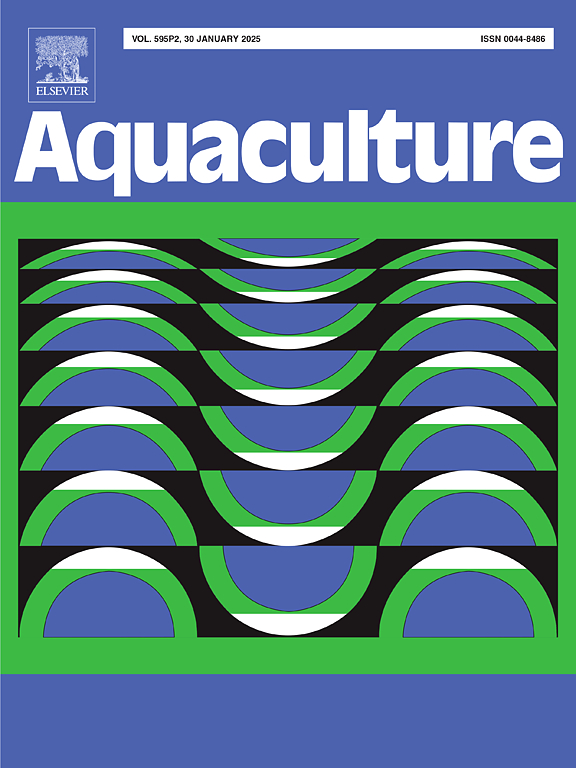miRNA-mRNA interaction mechanism in echinoderm Apostichopus japonicus in response to acute hypoxia
IF 3.9
1区 农林科学
Q1 FISHERIES
引用次数: 0
Abstract
The expanding low-oxygen areas in marine environments due to global climate change have posed a significant challenge to the survival of marine organisms and the health of ecosystems. The echinoderm Apostichopus japonicus, a sea cucumber species essential in benthic communities, has been experiencing annual mass mortality in summer in recent years due to hypoxia and other extreme events. Here, we observed sea cucumber behavioral plasticity and mortality in response to acute hypoxia, which was investigated at the molecular level using RNA-seq and miRNA-seq of coelomocytes to determine transcriptional and post-transcriptional regulation. The results indicated that sea cucumbers extended their tentacles and elongated their bodies to acquire more oxygen from the water. The enrichment analysis of differentially expressed genes (DEGs) suggested that “Ribosome biogenesis in eukaryotes” pathway was significantly downregulated and GO item “phagocytosis” was significantly upregulated, indicating that energy consumption reduction and immune activities increase are key response strategies to tolerance to hypoxia stress. Then, we predicted the potential miRNA-mRNA regulatory network involved in both processes and identified the evolutionarily conserved miRNAs that may be responsible for hypoxia stress in marine invertebrates. Our study provides insights into the behavioral plasticity and regulatory mechanism of sea cucumbers immune system in response to limited oxygen conditions and offers implications for the development of strategies used for aquaculture and wild population protection in the context of global climate change.
求助全文
约1分钟内获得全文
求助全文
来源期刊

Aquaculture
农林科学-海洋与淡水生物学
CiteScore
8.60
自引率
17.80%
发文量
1246
审稿时长
56 days
期刊介绍:
Aquaculture is an international journal for the exploration, improvement and management of all freshwater and marine food resources. It publishes novel and innovative research of world-wide interest on farming of aquatic organisms, which includes finfish, mollusks, crustaceans and aquatic plants for human consumption. Research on ornamentals is not a focus of the Journal. Aquaculture only publishes papers with a clear relevance to improving aquaculture practices or a potential application.
 求助内容:
求助内容: 应助结果提醒方式:
应助结果提醒方式:


